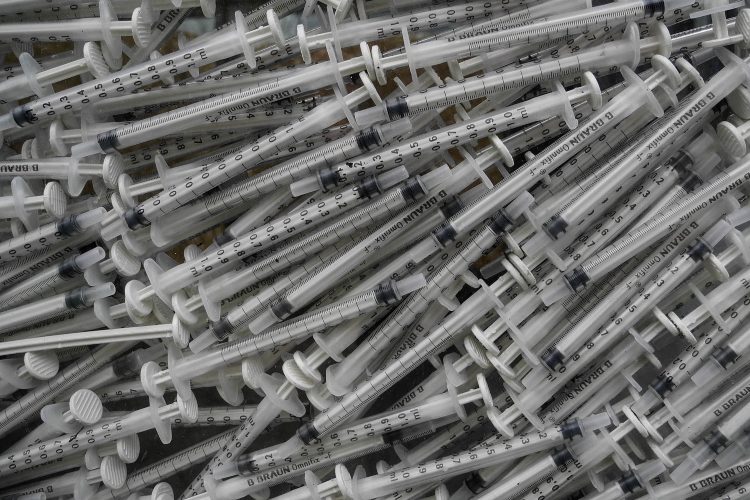Opioid addiction is one of the fastest-growing epidemics ever seen. Its epidemic growth may be one of the saddest drug addiction stories ever told. Almost every family knows of someone who is struggling with opioid addiction.
There are ongoing awareness campaigns that start all the time informing people about the symptoms of opioid addiction and how to seek treatment. There are no easy answers or solutions in how best to stop the widespread impact of opioid addiction in the U.S. There are positive steps forward that can be taken by all who suffer from opioid addiction.
Treatment and recovery plans frequently use Suboxone for opioid to help deal with opioid withdrawal symptoms. When you take Suboxone for opioid addiction, it should start in a treatment center that can work with you every step of the way. These steps towards recovery should include a treatment center, counselor, peer, support group, friends, and family members who support and help you with each phase.
The informational guide below will give you information on taking Suboxone for opioid addiction. Read on to find information which addresses how long you can take it, how it helps you, and more.

What is Suboxone?
The numbers about opioid addiction are almost surreal to read about. Three million people in the U.S. and 16 million globally who suffer from opioid addiction. What’s more, those numbers keep growing yearly.
Opioid addiction is a national crisis that’s affecting public health, society, and the country’s economic welfare. The Centers for Disease Control and Prevention estimate $78.5 billion is the financial burden the U.S. carries due to the opioid misuse and addiction levels. These dire numbers require some immediate drug treatment solutions.
Suboxone is one of the drug treatment solutions found and is now being used for opioid addiction. Suboxone is a brand name for this drug treatment medication. Suboxone effectiveness is in part due to its ingredients, which are buprenorphine and naloxone.
Buprenorphine is a partial opioid blocker that prevents the brain from the opiate receptors, thereby reducing a person’s urge to use opioids. Naloxone reverses the opioid effect. When they’re merged, they can prevent withdrawal symptoms that are the result of opioid addiction.

Suboxone for Opioid Addiction
No one has all the answers to opioid addiction. But using Suboxone for opioid addiction is a viable option when beginning treatment. Currently, there are two schools of thought about using Suboxone for opioid addiction.
The first school of thought about the use of Suboxone for opioid addiction was stated succinctly by Health and Human Services Secretary Tom Price in 2016. Mr. Price said he was “worried Suboxone was substituting one opioid for another.” He later retracted his statement, but that particular school of thought still exists in the country today.
The second school of thought about using Suboxone short or long-term for opioid addiction does help, but people should take it with therapy and support groups. That’s a very true statement. Unfortunately, it doesn’t always happen like that.
Suboxone is best taken through a medication-assisted treatment center because it gets results. The best medically-assisted treatments offer you an option to live free of opioid addiction. But there may be a cost to long-term use of Suboxone.
Long-Term Use of Suboxone
There’s no doubt there are two schools of thought about Suboxone use for opioid addiction. The different schools of thought also play into opinions about the long-term effects of using Suboxone. But Suboxone isn’t given to people suffering from opioid addiction haphazardly.
The patient in recovery goes through three phases when using Suboxone. The phases are:
- The Induction Phase – this is when the person who suffers from opioid addiction has been opioid-free for 12-24 hours and is in the early stages of withdrawal.
- The Stabilization Phase – this is when the patient no longer has cravings, so a physician will start adjusting and customizing the dosage.
- The Maintenance Phase – this is when the patient has a customized dosage of Suboxone. The length of time spent on Suboxone can be indefinite.
Recovery treatment centers need to carefully consider the pros and cons when administering Suboxone for opioid addiction because there can be long-term consequences.
Can You Overdose on Suboxone?
The downside to all of the above is people can become addicted to Suboxone. Plus, when people do abuse Suboxone, they can overdose on it. Overdoses can result in life-threatening conditions, such as:
- Low blood pressure
- Depressed respiration
- Seizures
- Coma, and more
While in a recovery treatment center, it is the recovery phase that prescribes your post-treatment needs. Suboxone is still the medically approved treatment to give for opioid addiction. As such, there needs to be strategic and careful aftercare planning to provide patients with the best chances at recovery.

Suboxone Treatment Can be Customized
When your in a recovery treatment program that helps you by spending time communicating about addiction and the behaviors and symptoms, they are showing you your past. The way forward is up to you. Recovery treatment centers have dedicated personnel standing by to talk to you and offer you general treatment information.
Your first step in helping yourself is always the hardest one to take. But once you start Suboxone and stabilize, your doctor can adjust your dosage and customize your treatment. Since every patient’s needs are different, the length of time a patient takes Suboxone is tailored to what best fits their needs.
Increase Your Chances of Success
Recovery treatment centers are your best chance of successfully treating and recovering from opioid addiction. Recovery treatment centers will also give you information about opioids and about using Suboxone for opioid addiction. Suboxone will help with your withdrawal symptoms and reduce your urge to use opioids again.
But remember, there’s no addiction easy to conquer. Combining Suboxone treatment with opioid recovery treatment can increase your chances of success. But also listed above are some of the stated concerns and medical issues that can occur when taking Suboxone.
You should never try to stop taking Suboxone on your own. If you stop abruptly, you can have severe withdrawal symptoms. Your doctor will work with you on lowering your dose gradually to minimize any discomfort.
There are alternative treatments for opioid addiction. Many recovery treatment centers incorporate the use of Suboxone. If you have more questions or want more information, please reach out to us today.
We want to help you find a healthy life waiting for you when you live in recovery.
Call Now
We're Here To Help!
Location
4747 Mission Blvd, Suite #6
San Diego, CA 92109






